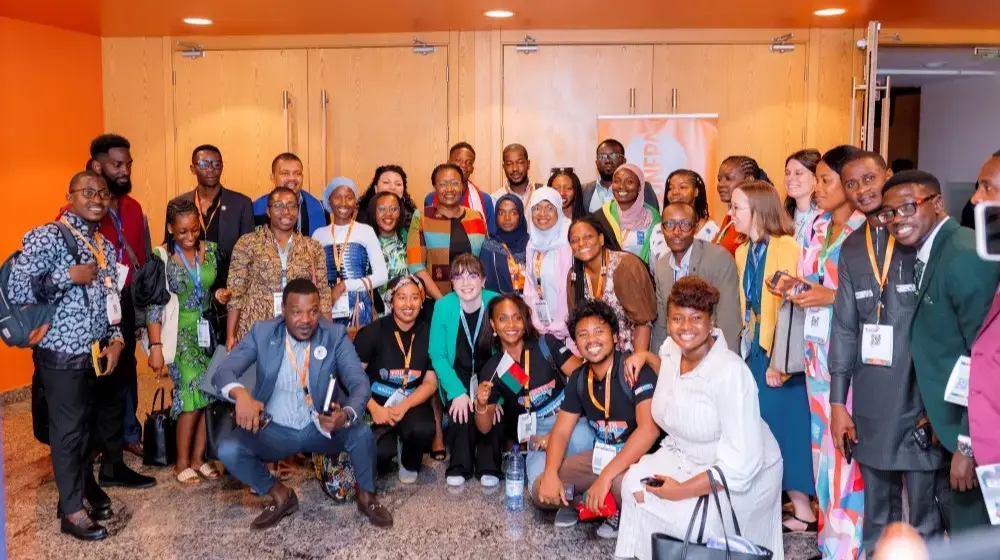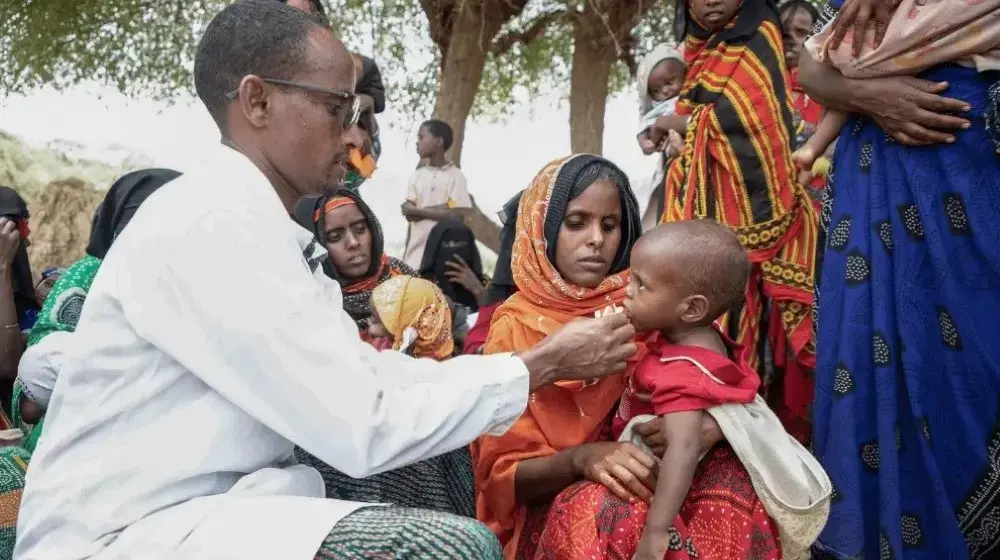KAMPALA, Uganda, 4 July — This is a critical time for Uganda in its capacity as President of the General Assembly to provide leadership in addressing population issues, especially maternal health, adolescent and youth empowerment, and participation and gender equality.
This was said by UNFPA Deputy Regional Director for East and Southern Africa, Lina Mousa, at a public debate on Harnessing the demographic dividend: accelerating socio-economic transformation in Uganda.
The debate was attended by Ugandan Minister of State for Foreign Affairs Henry Oryem, Ugandan Minister of State for Planning Matia Kasaija, Uganda’s National Planning Authority Chairman Dr. Kisamba Mugerwra, Acting Director of the Population Secretariat Charles Zirarema, Director of Partners in Population and Development (Africa Regional Office) Dr. Jotham Musinguzi, and development partners.
Uganda is ahead of most countries in the region in undertaking analytical work on the demographic dividend and facilitating public debate on this important development issue, Ms. Mousa said. “There is therefore a lot to learn from Uganda.”
The international community is currently engaged in a process to negotiate a new global framework that encompasses the International Conference on Population and Development (ICPD) beyond 2014 and the post-2015 development agenda.
She commended Uganda’s contributions to the ICPD beyond 2014 process through the national consultative process, and participation in regional and global fora on ICPD, such as the 47th CPD and African Regional Conference on ICPD. “Uganda has taken concrete actions to operationalize the Addis Ababa Declaration on ICPD, through the modelling of the demographic dividend to identify the required policy instruments to achieve demographic, social and economic transformation,” she said.
29th UNGASS on ICPD Beyond 2014
The 29th Special Session of the General Assembly, the General Assembly Special Session on the follow-up to the ICPD Beyond 2014, will be held in New York on 22 September 2014. Its purpose is to assess the status of implementation of the ICPD Programme of Action, to recommit governments at the highest political level and to renew political support for actions required for the full achievement of the goals and objectives of the Programme of Action of the ICPD.
“This is truly a great opportunity for the East Africa Region and the whole world,” she said.The special session provides a crucial opportunity for world leaders to express support for the findings and recommendations of the operational review contained in the UN Secretary-General’s report, “Framework of Actions for the follow-up to the Programme of Action of the International Conference on Population and Development Beyond 2014”, and to reaffirm the regional review outcomes as well as to call for the review outcomes to be taken into account in further implementation of the ICPD Beyond 2014 and be integrated into the post-2015 Development Agenda.
“As the world continues to reflect on progress made since 1994 and discuss effective ways to integrate population issues in the new development framework, this debate on the demographic dividend could not have been timely.
“In countries where mortality and fertility rates are beginning to fall, such as many countries in East Africa, there is an opportunity for governments to capitalize on the impending demographic transition, where the number of working-age adults grows large relative to the dependent population, and potentially acts as a major economic spur,” she said.
There must be a conducive policy environment for the demographic dividend to materialize. Such an environment would include investing in all five pillars of the demographic dividend. These are fertility decline through investments; universal and equitable access to quality healthcare by improving maternal, newborn and child health; enhancing access to sexual and reproductive health and rights, including family planning and targeting vulnerable groups; e ducation and skills acquisition; a healthy work force; youth employment; and governance and accountability.
This is the only way that faster economic development can be achieved, by taking advantage of the demographic dividend. “Let us invest in young people, because this is the smart thing to do if Africa is to attain faster economic growth,” Ms. Mousa said.
Strong political commitment to family planning
She noted the high level of political commitment of countries in the region, particularly Uganda, at the 2012 Family Planning Summit (FP2020) in London. “Uganda continues to demonstrate high level commitment to family planning.”
As young people are central to the realization of the demographic dividend, it is important to protect and fulfil the rights of adolescents and youth to accurate information, comprehensive sexuality education, health services for sexual and reproductive well-being and lifelong health to ensure a productive and competitive labour force.
Ms. Mousa said that the unfinished ICPD agenda will require collective advocacy for inclusion in the post-2015 development agenda to contribute to the realization of the demographic dividend, and inclusive and equitable development.
This includes addressing the issues of iincreasing wealth and income inequalities; unfulfilled gender equality and empowerment of women; the need for lifelong learning and building human capabilities, especially for young people; inequalities in access to sexual and reproductive health services; and inadequate health systems in rural and urban areas.
“Changing household structures and living arrangements require us to plan and build sustainable cities and strengthen urban-rural linkages,” she said. “This calls for the integration of population dynamics into development planning at the national, regional and international levels.”
She urged policy makers and development partners to use the results of the modelling of the demographic dividend to achieve faster economic growth and inclusive development.
“We can fast track the demographic dividend and the associated economic benefits by ensuring that every pregnancy is wanted, every child birth is safe and every young person’s potential is fulfilled.”




